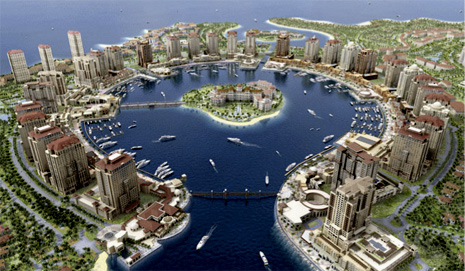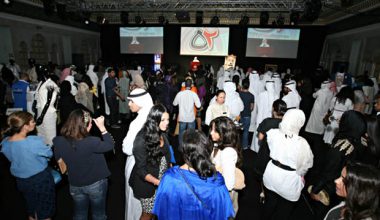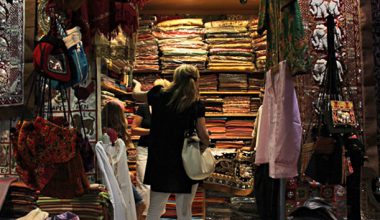
This is part 2 of our six-part series about an environmentalist living in the most greenhouse-gas emitting country in the world, Qatar. For part 1, click here .
Water is beautiful. It guards our land, it helps us tan, it nourishes us and it tastes great. Sadly, water statistics makes me cringe, and there are plenty of them. The GCC region is one of the most water-deprived regions in the world. Somalia’s recent drought, which has been described as the ‘worst in Africa’s history’ has grabbed headlines in recent weeks, but what about our GCC’s own water and marine-life crisis?
I’ve been a long-time advocate for raising awareness about the Great Pacific Garbage Patch, an artificial (non-touristic) island twice the size of Texas made from plastic debris and other pollutants that just floats freely in the Pacific Ocean. As such, I was extremely excited to visit The Pearl, Doha’s own artificial island, The Pearl.
The views, the aroma, the feeling – it was all breathtakingly beautiful. However, I couldn’t help but feel guilty for the duration of my visit- thinking of all the natural coral-life ad marine life that had to migrate and move away to make room for all the designer boutiques on this artificial island. Marine life has already suffered greatly since Desert Storm in 1991, where thousands of barrels from Kuwait’s oil wells were leaked into the ocean. Since then, mangrove coastal areas and sea grass habitats have been depleted by more than 35%. With The Palm Islands (in Dubai), The Pearl, and all the other artificial islands planned, compounded with the already-existing ocean pollution, one can only wonder the atrocities that marine life is suffering.
I’ve written before about the liquid electricity phenomenon which the GCC relies on heavily to obtain their drinking water (desalination plants). For such an energy-intensive process, one would think that regular tap water would be perfectly safe to drink. Sadly, The Qatar Tourism Authority advises visitors to boil tap water before they drink it, “if in doubt”. However, the general consensus from interviewing people seems to be that tap water isn’t safe, and many rely on bottled drinking water for all their water needs, even cooking. This further adds to our dangerous plastic addiction. I guess the fact that Qatar is aiming to recycle 38% of its waste by 2016 makes it all right.
It’s worth noting, however, that the citizens and residents of Qatar are in fact eco-conscious. I started my job at MercyCorps this week where we’re planning the Global Citizen Corps’ international summit. Instead of relying one single-use plastic water bottles, the office discussed providing the participants of the summit with reusable water bottles that they can refill from the water drinking taps as they’re on-the-go.
For the next week, I’ll be drinking tap water. Let’s hope I live long enough to write next week’s post.
-“Yara Al-Wazir is an environmental and humanitarian activist. She is the founder of The Green Initiative”
Got any tips? Tweet them to @YaraWazir







